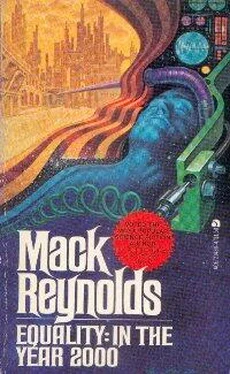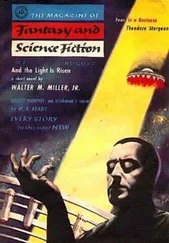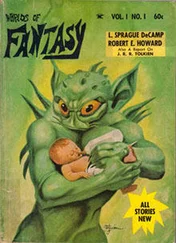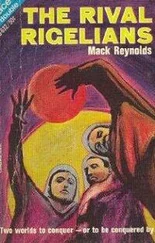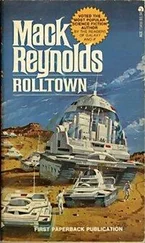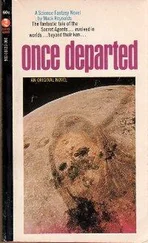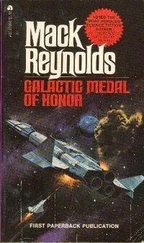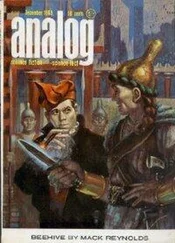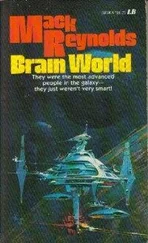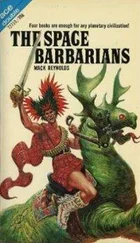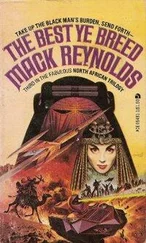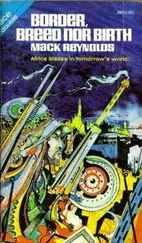Mack Reynolds - Equality - In the Year 2000
Здесь есть возможность читать онлайн «Mack Reynolds - Equality - In the Year 2000» весь текст электронной книги совершенно бесплатно (целиком полную версию без сокращений). В некоторых случаях можно слушать аудио, скачать через торрент в формате fb2 и присутствует краткое содержание. Год выпуска: 1977, ISBN: 1977, Издательство: Ace Books, Жанр: Фантастика и фэнтези, на английском языке. Описание произведения, (предисловие) а так же отзывы посетителей доступны на портале библиотеки ЛибКат.
- Название:Equality: In the Year 2000
- Автор:
- Издательство:Ace Books
- Жанр:
- Год:1977
- ISBN:0-441-21430-4
- Рейтинг книги:3 / 5. Голосов: 1
-
Избранное:Добавить в избранное
- Отзывы:
-
Ваша оценка:
- 60
- 1
- 2
- 3
- 4
- 5
Equality: In the Year 2000: краткое содержание, описание и аннотация
Предлагаем к чтению аннотацию, описание, краткое содержание или предисловие (зависит от того, что написал сам автор книги «Equality: In the Year 2000»). Если вы не нашли необходимую информацию о книге — напишите в комментариях, мы постараемся отыскать её.
Equality: In the Year 2000 — читать онлайн бесплатно полную книгу (весь текст) целиком
Ниже представлен текст книги, разбитый по страницам. Система сохранения места последней прочитанной страницы, позволяет с удобством читать онлайн бесплатно книгу «Equality: In the Year 2000», без необходимости каждый раз заново искать на чём Вы остановились. Поставьте закладку, и сможете в любой момент перейти на страницу, на которой закончили чтение.
Интервал:
Закладка:
He’d hardly had time to seat himself before they were at a new station whose sign read BUILDING TWO. He got out and made his way over to the elevator banks. From time to time people passing would smile at him in friendly fashion, and twice people nodded and said, “Mr. West,” by way of greeting. Although he knew none of them, evidently his face was recognized widely. So, he was rapidly becoming a minor celebrity in spite of Dr. Leete’s attempts to shield him in these early weeks of his arrival from the past.
He said, “Sixteenth Floor,” into the elevator’s screen and the robotlike voice answered, “Yes, Mr. West.” He wondered vaguely what would happen if he went out to some place on the Pacific coast: would the elevator screens recognize him there? Were the data banks and the face of every resident of United America tied in with every screen in the country? The magnitude of it all rather boggled his mind.
There were signs on the wall on the sixteenth floor, giving directions. He had no difficultly finding Sean O’Callahan’s apartment. He pressed the button, standing before the identity screen.
The door opened, and he was greeted by a beaming Sean.
“Come in and meet your surprise.”
Frowning in puzzlement, Julian followed his host into the living room. Four men were seated there, including William Harrison and Frederic Ley. The other two were strangers: a young man of possibly thirty, tall, intelligent-looking, with a somewhat quizzical expression; the other must have been somewhere in his early seventies, slightly heavy, gray hair and mustache, slightly florid face.
The latter said in a slow voice, “Hello, Jule. It’s been a long time.”
Julian stared at him, shot a puzzled look at the grinning Sean, then gazed back at the elderly man.
“You look exactly like you did the last time we saw each other in the Knickerbocker-Links Club in New York. I’m afraid you can’t say the same about me.”
“I’ll be damned!” Julian exclaimed. “Bert Melville!”
“That’s right, Jule. I thought you were committing suicide when you let that crackpot Doctor Pillsbury put you into hibernation; evidently he wasn’t as big a crackpot as everybody thought. Here you are, looking about thirty-five. Here I am looking seventy-three and feeling every year of it. I should have let him put me under too.”
“To wake up in a world like this?” Harrison said bitterly.
Sean led Julian over to the younger man, who stood at their approach. “This is Dave Woolman,” he said, “who has one of the most fascinating jobs in the country.”
Dave had a very sincere, unhumorous smile, and shook hands strongly. “I’ve been looking forward to meeting you. Somebody out of the past. Somebody who knew the real world.”
Julian didn’t quite get that. He said, “Nice to meet you. What’s the most fascinating job in the country?”
“Sit down. Sit down, everybody,” said Sean. When they were seated, he explained, “Possibly not for Dave. It’s probably just tedious routine for him, but he’s in charge of the Radio Astronomy Observatory on Luna.”
Julian shook his head. “What’s radio astronomy? Astronomy is a field on which I was completely blank even in the 1960s. You can imagine to what extent I’m ignorant now, after a third of a century of progress. Did you say Luna? You mean there’s an observatory on the moon?”
Dave Woolman nodded. “It was decided as far back as 1960 that the radio telescope, rather than the spaceship, would probably be the first instrument to establish contact with intelligent life beyond the solar system. Since your time, we have receivers of such sensitivity and antennas of such enormous size, that we are optimistic about sending and picking up radio signals from the nearer stars. The search for these signals began in 1960 at the National Radio Astronomy Observatory in Greenbank, West Virginia. The Luna Observatory is a great advantage. It’s located on the far side, and hence cut off from a great deal of the local radio interference that an earth-bound observatory suffers.”
“I’m impressed,” Julian said. “Have you been able to pick up any messages from other worlds?”
A strange silence fell over the whole group.
Woolman said finally, “I am afraid I’m not in a position to answer that.”
The elderly Bert Melville changed the subject. He had been looking at Julian intently, and now he turned to Harrison and said, “You know, Jule and I used to belong to a consorium based in New York, the Bahamas, and Switzerland. We used to swing some pretty big deals.” His laugh quavered a bit. “Those were the days, eh, Jule? Remember the time we squeezed out Bob Percy and took over Diversified?”
“Yes. Yes, I remember that operation. Bob shot himself afterwards.”
“I’d forgotten about that part of it,” Melville said.
Harrison seemed slightly impatient. He said to Julian, “Did you think over what we were discussing the other day—in short, Utopias?”
“Yes, yes I did. Frankly, I didn’t come up with much in the way of a conclusion.”
Harrison nodded. “I was just giving you some preliminaries to work on, Mr. West. Are you acquainted with the work of a contemporary of yours, the British writer Arthur C. Clarke?”
Julian frowned a little. “It seems to me that the Leetes have mentioned him a couple of times, as a popularizer of science.”
“Yes.” Harrison got to his feet and went over to the library booster, which sat on the desk. He dialed as he said over his shoulder, “This is from one of his books. Astonishingly prophetic. I’ll read you just this one passage.
“’Civilization cannot exist without new frontiers; it needs them both physically and spiritually. The physical need is obvious—new lands, new resources, new materials. The spiritual need is less apparent, but in the long run it is more important. We do not live by bread alone; we need adventure, variety, novelty, romance. As the psychologists have shown by their sensory deprivation experiments, a man goes swiftly mad if he is isolated in a silent, darkened room, cut off completely from the external world. What is true of individuals is also true of societies; they too can become insane without sufficient stimulus.’”
Harrison deactivated the screen and turned back to Julian. “What’s your reaction to that?”
“I don’t know.” Julian shifted in his chair. “It makes a lot of sense.”
The seventy-three-year-old Bert Melville leaned forward impatiently. “Jule, the damn country is turning to mush. Ninety-eight percent do nothing but putter around with their hobbies: they paint paintings nobody wants to look at; they write books nobody reads; they move into mobile towns and travel around the country doing nothing but trying to enjoy themselves.”
Harrison took it up with his usual energy. “Ethically, the country is going to pot. Institutions that have come down to us through the ages are being completely eroded. Look at sex. All the young people now behave like rabbits. They start educating them on how to screw in God only knows how many different positions as soon as they’re into their teens. The family is disappearing, and the population is beginning to decrease. Whatever happened to religious training? The churches are empty except for old folks—those churches that remain at all.”
The usually taciturn Ley put in his word. “It’s like Mr. Melville said. ‘The country’s turning to mush.’ They don’t even have boxing any more. ‘Somebody might get hurt.’ Hell, when I was a kid Joe Louis was still alive. Fought his way up out of the slums, thrilled millions, and made millions. What’s wrong with that? Give the kids a desire to make something of themselves, to fight their way up. I read about this Manolete, the bullfighter in Spain. Another slum kid, but with guts. Became the best bullfighter of all time. Made tons of bucks thrilling people, taking his chances. Inspired other poor Spanish kids to make their play for the big time. How about car racing? I was at Indianapolis one year, at the Old Brickyard. Talk about thrills. The crowd was on its feet half the time, yelling themselves crazy. Those guys that drove those cars had guts, and they inspired younger people to get in there and fight.”
Читать дальшеИнтервал:
Закладка:
Похожие книги на «Equality: In the Year 2000»
Представляем Вашему вниманию похожие книги на «Equality: In the Year 2000» списком для выбора. Мы отобрали схожую по названию и смыслу литературу в надежде предоставить читателям больше вариантов отыскать новые, интересные, ещё непрочитанные произведения.
Обсуждение, отзывы о книге «Equality: In the Year 2000» и просто собственные мнения читателей. Оставьте ваши комментарии, напишите, что Вы думаете о произведении, его смысле или главных героях. Укажите что конкретно понравилось, а что нет, и почему Вы так считаете.
